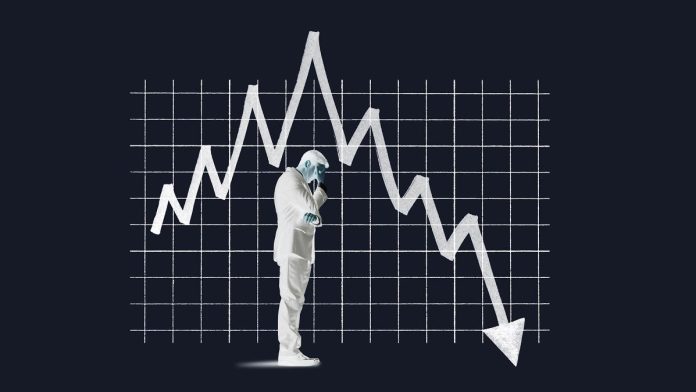The American economy may go recessive in the next three months, Bank of America warned in a note today, saying this was the consensus among business leaders. A recent Conference Board survey found that 98% of business CEOs — up from a prior reading of 95% — expect a recession to occur in 2023.
Economists and business observers are calling the impending doom the most telegraphed recession in history, as everyone is foreseeing a decline. This is plausible, given that interest rates soared in 2022, coupled with extreme volatility in the commodities market that kept inflation high.
Bank of America’s Michael Hartnett, who outlined these five signals as reasons to believe that a recession is likely by early 2023, says now the symptoms of a recession are conspicuous.
5 reasons for a potential recession in the US soon
- The yield curve now is the most inverted since what was seen in October 1981, with the 10-year US Treasury yield currently about 80 basis points below the yield of the 2-year US Treasury note. This is a trustworthy leading recession indicator that investors closely follow.
- Oil is down 40% in six months in spite of a host of bullish supply factors, including China reopening its economy, the Russian oil price cap, an empty US Strategic Petroleum Reserve and OPEC remaining supply constrained. Rather, oil prices falling could signal a potential weakening in demand.
- Bank stocks have declined by 10% in just four days. That may indicate that investors are expecting a slowdown in growth. Bank stocks are described quite often as a “canary in the coal mine”. They feel the pinch of a downturn earlier than stocks in other sectors.
- ISM manufacturing new orders have fallen three straight months during the current period of high inventories. Overall, this serves as a potential signal that businesses are anticipating, or already experiencing, a slowdown in customer orders.
- The US home sales index is down 37% year-over-year whereas home prices in Sweden, New Zealand, Canada, and Sydney, Australia are down 13%, 11%, 10%, and 5%, respectively. Overall, the housing market, both in the US and abroad, is slowing down, and that can have a negative wealth effect and hurt consumer spending.
The chance of a recession means investors should stick to owning high quality investments, according to the Bank of America note. “Best hedge for both base case and 2023 risk scenario for the moment is Treasuries and boring stocks with strong balance sheets,” Hartnett said.




You must log in to post a comment.